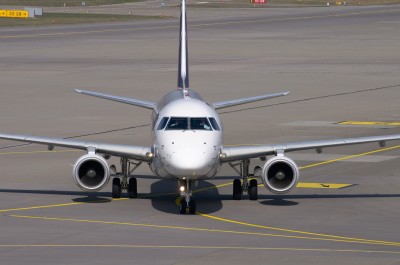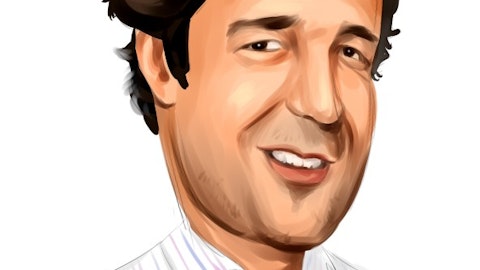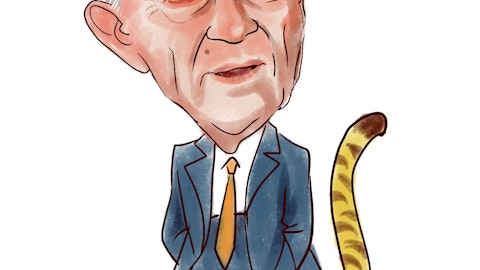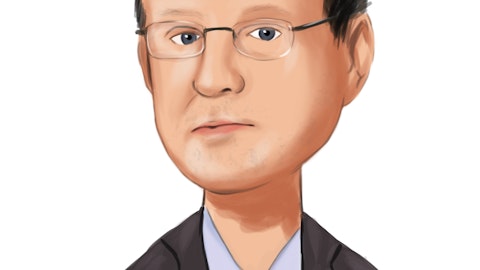Horos Asset Management recently released its Q1 2020 Investor Letter, a copy of which you can download here. Horos Value Iberia fell by -35.1% compared to -27.6% of its benchmark index. On the other hand, Horos Value Internacional was down by -30.2% compared to -19.6% of its benchmark index. You should check out Horos Asset Management’s top 5 stock picks for investors to buy right now, which could be the biggest winners of the stock market crash.
In the said letter, Horos Asset Management highlighted a few stocks and AerCap Holdings N.V. (NYSE:AER) is one of them. AerCap is the world’s largest independent aircraft leasing company. Year-to-date, AerCap Holdings N.V. (NYSE:AER) stock lost 51.6% and on June 24th it had a closing price of $30.66. Value investors such as David Einhorn and Horos Asset Management were bullish about AER before the stock lost more than half of its value. Here is what Horos Asset Management said in its latest letter:
“AerCap is the global leader in commercial aircraft leasing.11 Its share price has plummeted since mid-February, with a maximum drawdown of nearly 80% of its stock market value. When a financial company is trading at 20% of its book value, it is obvious that the market is pricing in little short of its bankruptcy. If this is the case, what are the fears that have led investors to value AerCap at these levels? And even more relevant, why did we decide to increase our stake in it? To answer the first question, we need to briefly review how AerCap’s business works. The company buys planes manufactured primarily by Airbus and Boeing, and then leases them out to the airlines for several years (sometimes they buy planes from the airlines themselves and then lease them back to them). To finance these acquisitions, AerCap either borrows on the capital markets or obtains bank financing. Herein lies the first of the fears. The uncertainty about the magnitude of the potential business decline has made it very difficult to issue new debt, as the returns demanded by investors are not acceptable.
If you cannot issue debt, how will you be able to meet your next investment commitments (new aircraft purchases) and debt maturities? Under normal circumstances, AerCap would cover these commitments, in addition to issuing new debt, with the cash flows generated by the business itself (income from aircraft lease rents) and the sale of aircraft on the secondary market. Indeed, here lies the second fear of the market, can you continue to collect rents in an environment where your clients cannot make money? Almost all the airlines in the world are suffering through one of their worst crises in history. If people cannot travel and planes cannot fly, it is only a matter of time before many of them become decapitalised and go bankrupt. On the other hand, AerCap has been an active seller of planes —with large returns— on the secondary market, taking advantage of the high demand in recent years for this type of asset. In this uncertain environment, it seems unlikely that they will be able to keep up the pace of divestments, so this source of liquidity is also diminished. This does not seem to be a particularly attractive scenario for investing in the company.
However, there are several factors that make us somewhat optimistic about AerCap’s future. To begin with, AerCap has always been a very conservatively managed company, which has led it to operate with a high liquidity cushion to deal with possible adverse situations. Specifically, at year-end AerCap had a liquidity ratio that would allow it to meet a year and a half of investment commitments and debt maturities. In addition, the bulk of AerCap’s aircraft fleet —worth over $28 billion— could be used as collateral for future debt, if necessary.
Regarding the situation of its clients, AerCap has announced, like the rest of the companies in the sector, that it will facilitate a delay in payments to its best customers. Direct acquisitions of aircraft from the airlines themselves cannot be ruled out (in fact, other companies such as BOC Aviation have already done so) in order to relieve them financially and get good returns from the deal. In addition, AerCap’s large scale has allowed it to diversify its client base enormously —to around 200— and to be able to be demanding with the guarantees required from those with a poorer operational and/or financial position, e.g. deposits for potential non-payments or minimal maintenance of the aircraft. More specifically, the company has significant exposure to Asian players (40% of revenues, including Russia), mostly Chinese state-owned airlines, where the risk of massive bankruptcies seems insignificant and where, on top of that, the situation is starting to recover somewhat —in fact, there are customers there who are starting to pay back deferred rent to AerCap. However, another aspect that helps us feel relatively confident about airlines is the expected massive government bailouts of the sector, as it is an industry closely linked to national interests.
Finally, it is worth noting that, in an environment of paralysis in economic activity, Boeing and Airbus will not be able to continue manufacturing aircraft at the expected rate, so AerCap’s investment commitments would be drastically reduced. To all this, we should add what is possibly the best management team in the industry, as well as a structural growth trend in air traffic to which we will undoubtedly return once this pandemic is overcome.”

In Q1 2020, the number of bullish hedge fund positions on AerCap Holdings N.V. (NYSE:AER) stock decreased by about 11% from the previous quarter (see the chart here), so a number of other hedge fund managers don’t seem to agree with AER’s upside potential. Our calculations showed that AerCap Holdings N.V. (NYSE:AER) isn’t ranked among the 30 most popular stocks among hedge funds.
The top 10 stocks among hedge funds returned 185% since the end of 2014 and outperformed the S&P 500 Index ETFs by more than 109 percentage points. We know it sounds unbelievable. You have been dismissing our articles about top hedge fund stocks mostly because you were fed biased information by other media outlets about hedge funds’ poor performance. You could have doubled the size of your nest egg by investing in the top hedge fund stocks instead of dumb S&P 500 ETFs. Below you can watch our video about the top 5 hedge fund stocks right now. All of these stocks had positive returns in 2020.
Video: Top 5 Stocks Among Hedge Funds
At Insider Monkey we leave no stone unturned when looking for the next great investment idea. For example, 2020’s unprecedented market conditions provide us with the highest number of trading opportunities in a decade. So we are checking out stocks recommended/scorned by legendary Bill Miller. We interview hedge fund managers and ask them about their best ideas. If you want to find out the best healthcare stock to buy right now, you can watch our latest hedge fund manager interview here. We read hedge fund investor letters and listen to stock pitches at hedge fund conferences. Our best call in 2020 was shorting the market when the S&P 500 was trading at 3150 after realizing the coronavirus pandemic’s significance before most investors. You can subscribe to our free enewsletter below to receive our stories in your inbox:
Disclosure: None. This article is originally published at Insider Monkey.





